DGI Invisuals Print Division Joins Kirkwood
On November 2, we announced the sale of our Invisuals division to Kirkwood, a premier full-service visual communications provider. This milestone represents an exciting shift for us, empowering a focus on our core strengths — delivering high-quality audio-visual integrations, consulting, and technology solutions for our clients.
Learn more about the Invisuals acquisition >
It’s easy to underestimate the importance of commercial soundproofing. Function, form and aesthetic might feel more important when designing or remodeling, but commercial sound masking is a key consideration across all industries — including offices, industrial, manufacturing, hospitality, education, healthcare and more.
Why Is Commercial Soundproofing Important?
For many employees and in many industries, privacy and quiet are essential. By providing these elements, commercial soundproofing promotes a positive working environment and can improve productivity. The good news is that you can achieve private, quiet space with office sound masking and commercial soundproofing products.
Soundproofing products may seem like an unnecessary luxury, but taking the time now to examine the quality of your acoustics and mitigate any potential issues will avoid pitfalls and challenges in the future. It’s a sound investment that can enhance a space while enabling productivity.
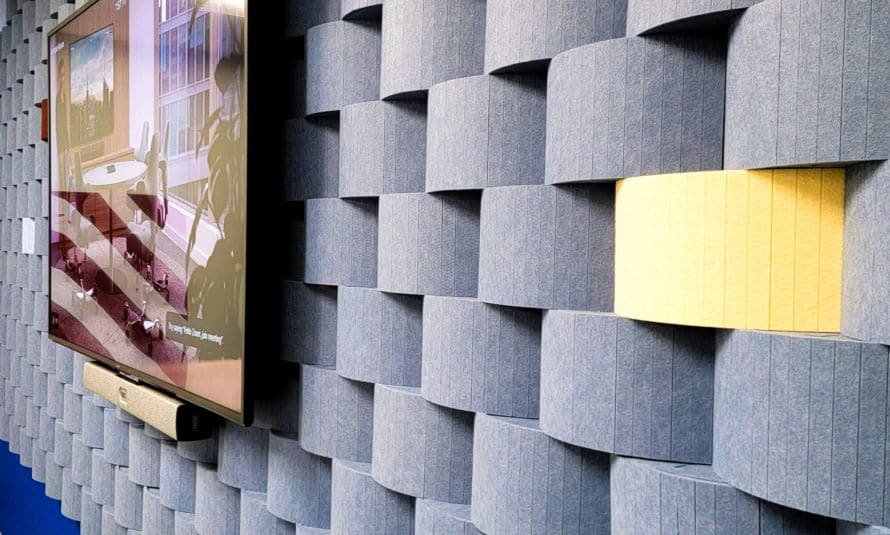
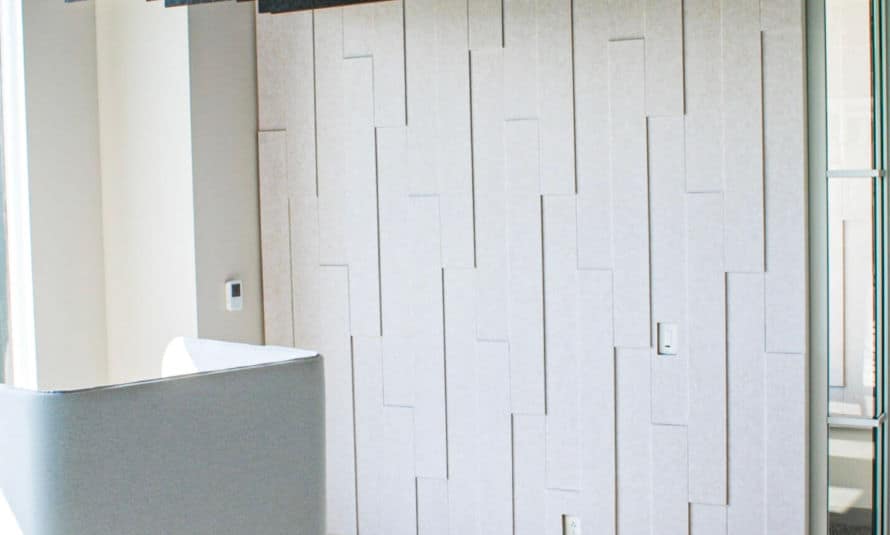
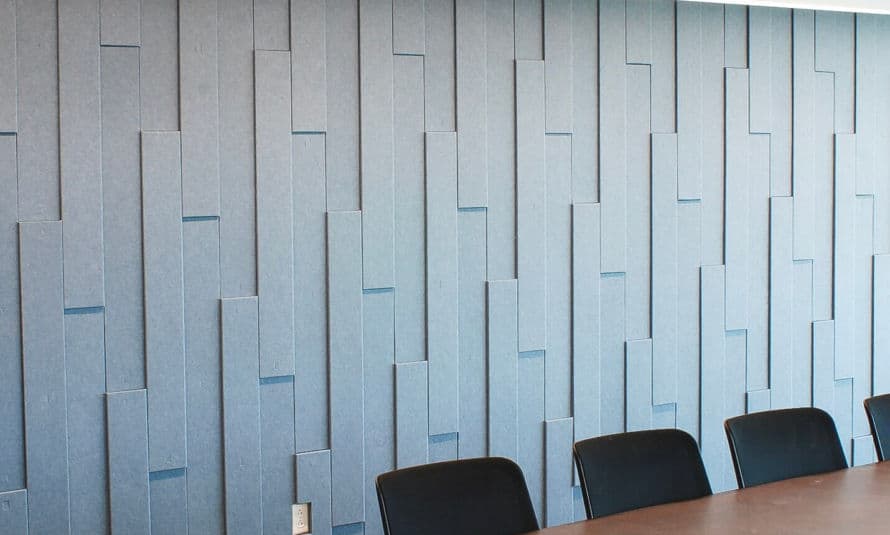
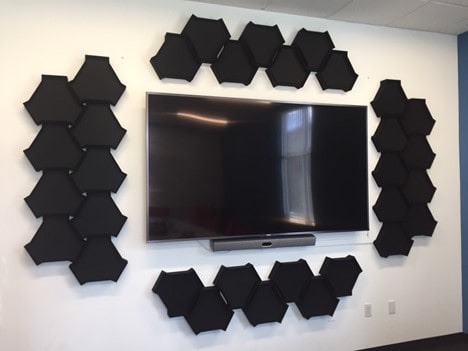
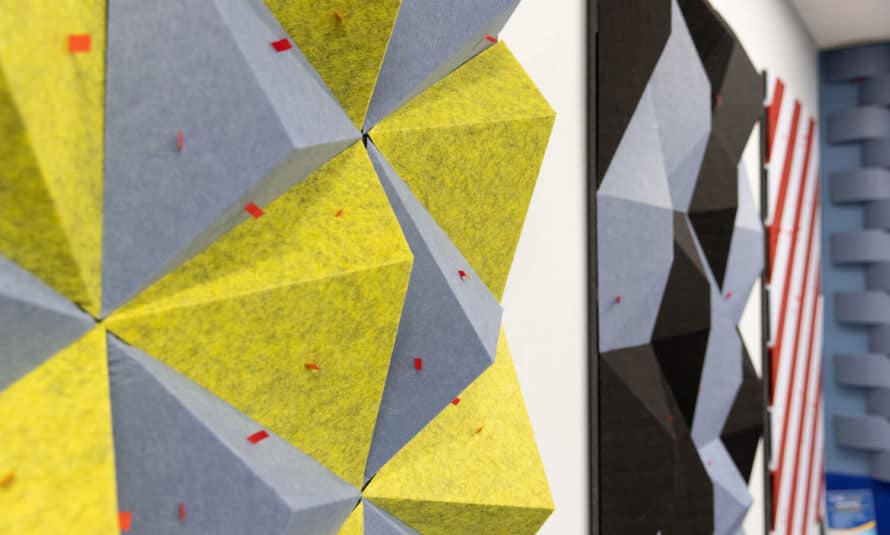
Commercial Soundproofing Solutions
No matter the industry, there’s a commercial soundproofing solution available. Here are some examples:
- Healthcare: Soundproofing is critical in hospitals and clinical facilities where HIPAA protocols are in place. Hospital soundproofing enhances privacy, reduces machine and monitor sounds and provides a more restful and comfortable environment for patients, staff and visitors. Ceiling and wall panels can function as decor in patient rooms, and architectural soundproofing products in public spaces can be integrated into design strategies.
- Restaurant/Hospitality: Restaurant soundproofing helps create a pleasant ambiance, provides patrons a sense of privacy while dining or staying, and reduces the impact of industrial noise and intrusive outside sound. Acoustic panels and dimensional sound masking products can make a significant difference in a customer’s experience.
- Industrial: Industrial soundproofing solutions such as baffles, ceiling tiles, enclosures, barriers and panels work to reduce ambient noise levels in industrial facilities where the effects of poor acoustics can be felt inside and in the surrounding area.
- Office: Office soundproofing solutions typically focus on sound absorption and masking, including products like panels, baffles and dimensional products to create quiet, private workspaces and high-quality audio experiences for conferencing and meetings. These solutions also help control environmental sound pollution in public spaces.
Common Commercial Soundproofing Products
Newcomers to commercial soundproofing might only think of “egg crate” foam panels used for sound absorption in recording studios, but the true range of products and solutions is broad and diverse. Here is a sampling of common commercial soundproofing products:
- Acoustic art panels for walls and ceilings: Full-color printing allows you to customize acoustic art panels with photographs, logos, corporate colors, diagrams and more.
- Sound masking equipment: Sound masking solutions generate sound to mask unwanted noise in an environment. Sound masking can reduce or eliminate perceived sound when applied to an entire area. It can also improve acoustic privacy and help employees focus.
- Acousti-Print panels: Acousti-Print panels are a line of fully customizable sound absorption products able to optimize the room acoustics for any space. Acousti-Print products can be fabricated for new or existing spaces, and once installed, the visual element can be changed without uninstalling the sound absorption panel.
- Primacoustic sound absorption panels: Primacoustic panels are visually customizable sound absorption panels available in set sizes and custom-configured to fit your space.
- Sustainable sound panels: Sustainable sound is an eco-friendly, highly customizable sound absorption solution sourced from recycled plastic that can be cut to any shape. Sustainable sound does not require any specific pre-existing infrastructure to install and can display custom images, branding, text or logos, as well as interior wall palette colors.
- Soundproofing insulation: Fabricated from densely-packed fibers, sound-dampening insulation fits snugly between wall studs. Sound absorbing insulation does not require special tools to install and drastically decreases sound transfer, which makes it a great commercial soundproofing solution for new construction or structural remodels.
- Acoustic foam: Acoustic foam is designed to reduce noise by absorbing and controlling sound waves within a space. Typically, the thicker the acoustic foam, the better the noise will be absorbed. Acoustic foam is not limited to the common “egg crate” shape; what shape you choose will depend on the end use scenario.
Control High Noise Levels
High-noise environments like industrial areas, large offices and high-traffic bars and restaurants require special attention.
Controlling these noisy environments improves on-site employee safety by lowering the likelihood of misinterpreted information (from safety instructions to waitstaff taking orders and noting allergies) and stress-related errors or injury. It also aids in improving productivity. If industrial noise pollution adversely affects the surrounding community, you may face consequences from municipal agencies or even private legal action ultimately resulting in loss of revenue.
Industrial sound absorption, restaurant soundproofing and high-traffic office acoustic management all mitigate these potential pitfalls.
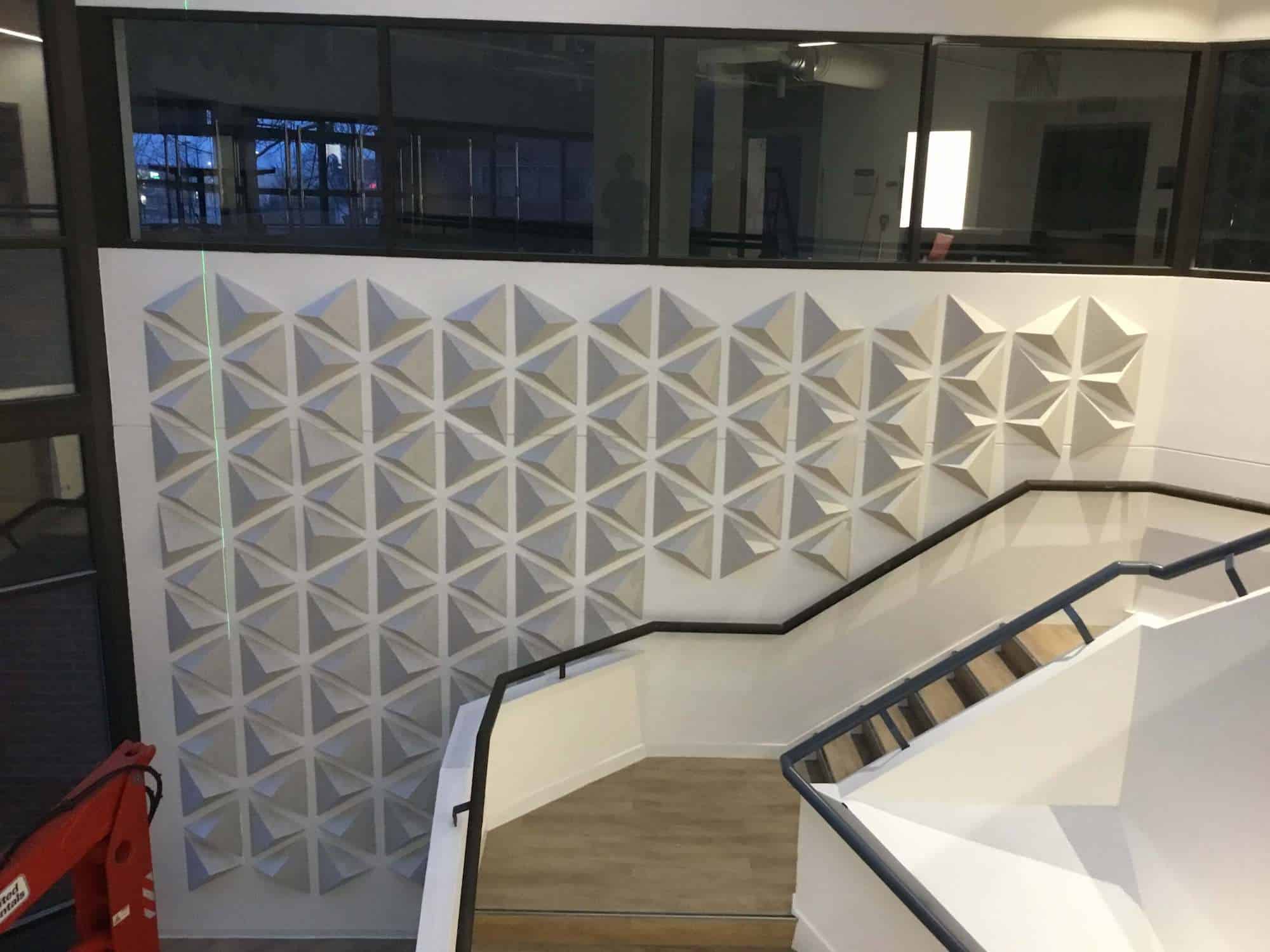
Distribute Sound with Acoustical Balance
Distribution or diffusion of sound is ideal for all types of commercial businesses. This companion to sound absorption is most effective in spaces where too much absorptive material might deaden sound and work against your efforts to improve room acoustics.
Speakers and presenters should be able to speak normally and be understood, whether amplified or not, from every seat in the house. Controlling reverberation by combining absorption and diffusion can achieve that balance.
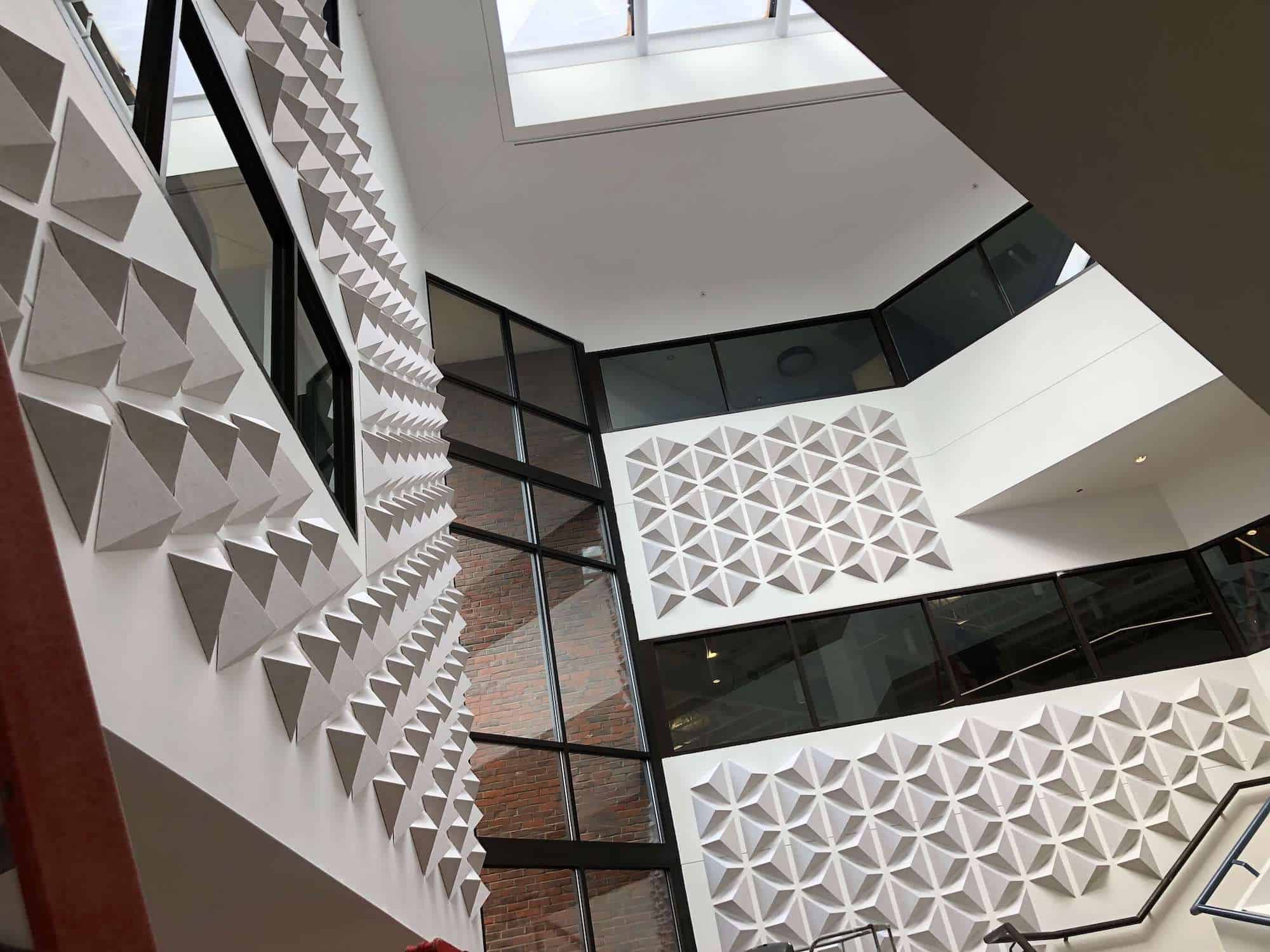
Create Quiet Spaces
Some industry workspaces, particularly hospitals, co-working studios, smaller offices, libraries and study spaces require quiet rooms:
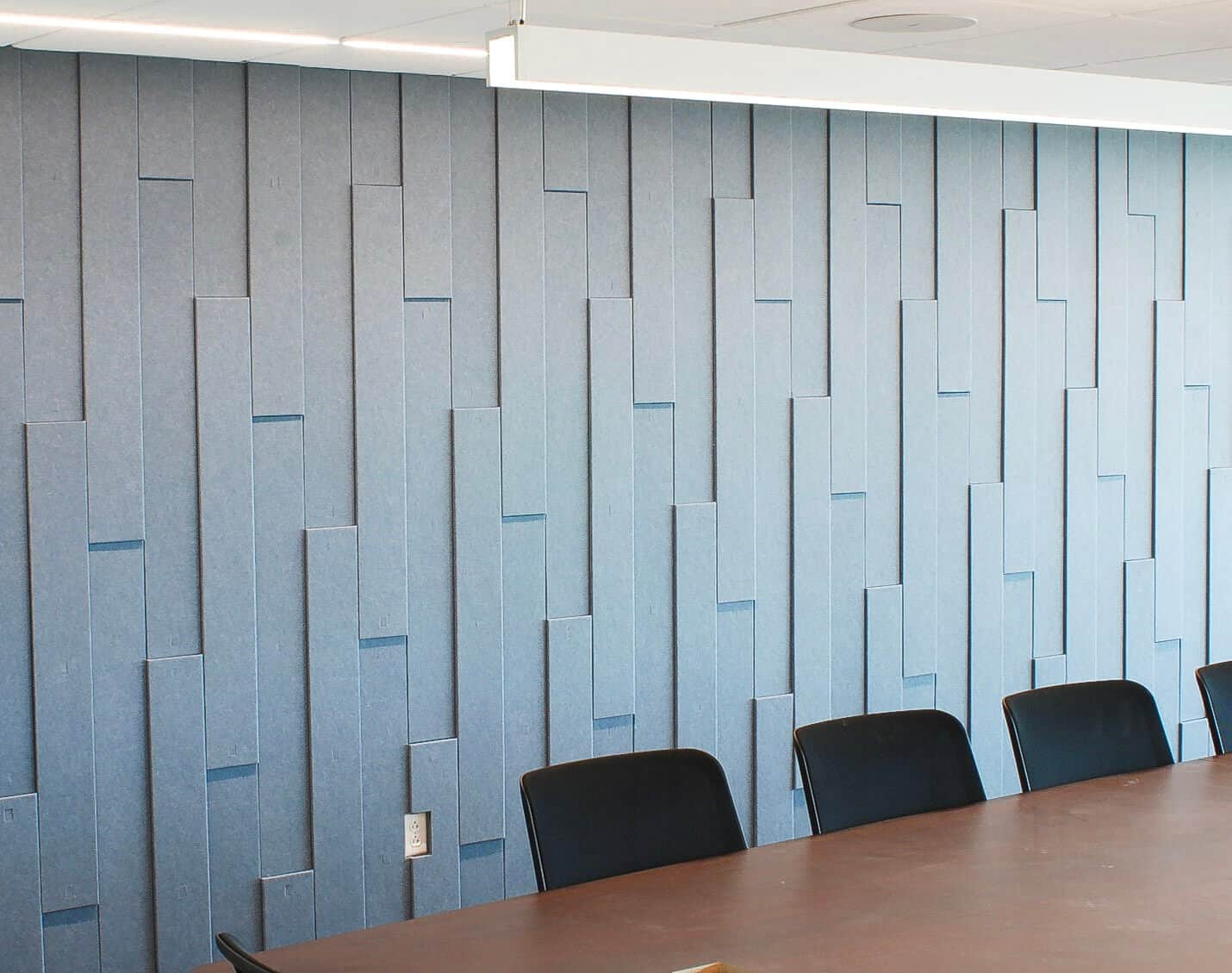
Benefits of Commercial Soundproofing & Sound Masking
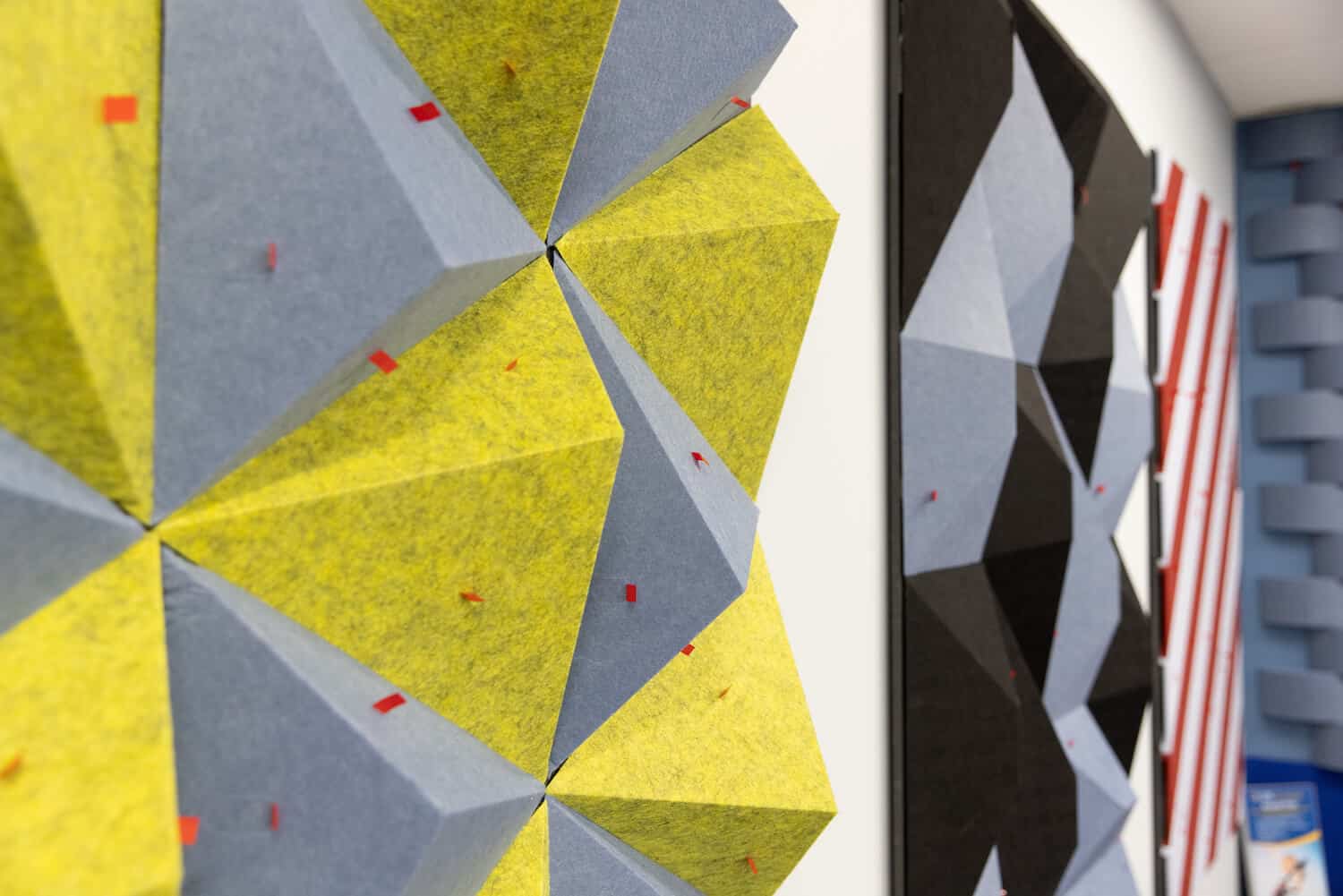
Hear From Our Clients
As part of a recent renovation, Copyright Clearance Center (CCC) was in need of a technology retrofit. CCC enhanced client confidentiality through the recent integration of a Qt Sound Masking System, installed and calibrated by DGI. The sound masking system comprises three Qt 600 control modules and over 400 sound masking emitters, which allow for precise control over multiple zones on each floor.
Are you ready to engage your audience, improve employee and guest communication, and create a dynamic environment with our state-of-the-art audio visual technology? DGI’s passionate and talented team is ready to work with you.
Our experts can perform a RT60 Sound test to see how your spaces perform* in order to provide a custom recommendation that’s right for your organization’s needs. You’ll get a room acoustics report to determine how to best mitigate your acoustic challenges, and rest easy with sound advice from DGI. Request a quote today.
*Reverberation time is a measure of the time required for the sound to “fade away” in an enclosed area after the source of the sound has stopped. When it comes to accurately measuring reverberation time with a meter, the term T30, T20 or RT60 (an abbreviation for Reverberation Time 60dB) is used. T30/T20/RT60 provides an objective reverberation time measurement.




